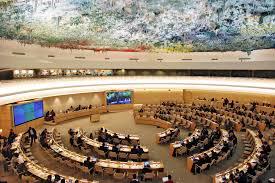
On 31 October 2016, United Nations member States reviewed the human rights situation in Syria in the context of the country’s second Universal Periodic Review (UPR), an interactive discussion between the State under review and other UN Member States which takes place every four years. During the review, States expressed their concern over the gross violations of human rights and humanitarian law in Syria and issued 231 recommendations in order to put an end to this worrying situation, most of which were based on concerns raised by NGOs, including Alkarama in its report. On 16 March 2017, as the UN Human Rights Council adopted Syria’s UPR outcome[u1] , Syria presented its views over the recommendations received, accepting in total or in part 161 of them while rejecting 80 others.
The practice of torture, arbitrary detentions and enforced disappearances
Infamous for the widespread practice of torture in government-controlled premises, more than ten countries demanded Syria to put an end to the practice of torture. All these recommendations were dismissed by the government, because considered as “based on incorrect assumptions”. While the Syrian authorities expressed their readiness to ratify the International Convention for the Protection of All Persons from Enforced Disappearance (ICPPED), all recommendations aiming at stopping this practice were rejected because deemed “unfounded”. Indeed, the Syrian authorities alleged that whereabouts of the detainees arrested by the authorities, their legal status and the charges against them were always communicated. Alkarama however, has documented dozens of cases of disappearances that still remain to be clarified. Finally, recommendations calling for the end of the arbitrary detention of human rights defenders, journalists and political dissidents and their release were “partially accepted but under further consideration”.
Attacks against civilians and hospitals
In light of the countless accounts of indiscriminate attacks carried out against civilians and civilian objects with barrel bombs, chemical weapons, cluster munitions and weapons of indiscriminate nature, all means of warfare prohibited by international humanitarian law, numerous recommendations demanded Syria to ensure the full protection of its population from the effects of war. The Syrian authorities commented that they are fully committed to respect international law and to ensure safety and security of civilians as well as civilian objects such as schools and hospitals.
Cooperation with the UN and the Independent International Commission of Inquiry
The large number recommendations calling upon Syria to fully cooperate with the Independent International Commission of Inquiry (CoI) were not accepted. Similarly, Syrian authorities rejected the recommendation to improve cooperation with the UN Special Procedures by extending to them a standing invitation. Nevertheless, the Syrian authorities commented that their refusal would not affect their collaboration with the Special Procedures, with whom they say they have been consistently collaborating. Alkarama notes that, however, of all the numerous cases of enforced disappearances submitted to the UN Working Group on Enforced Disappearances (WGEID), rare are the cases in which a reply from the Syrian authorities was received, and no case was ever fully clarified by the authorities.
What is next?
In order to put an end to the gross human rights occurring in the country, Syria must now implement the 161 accepted or partially accepted recommendations. Alkarama regrets that during the most important recommendations aiming at combating the use of torture and enforced disappearance and at increasing the country’s collaboration with the UN were not accepted. Alkarama will closely follow the implementation of the recommendations in the country.
For more information or an interview, please contact media@alkarama.org (Dir: +41 22 734 1008).
